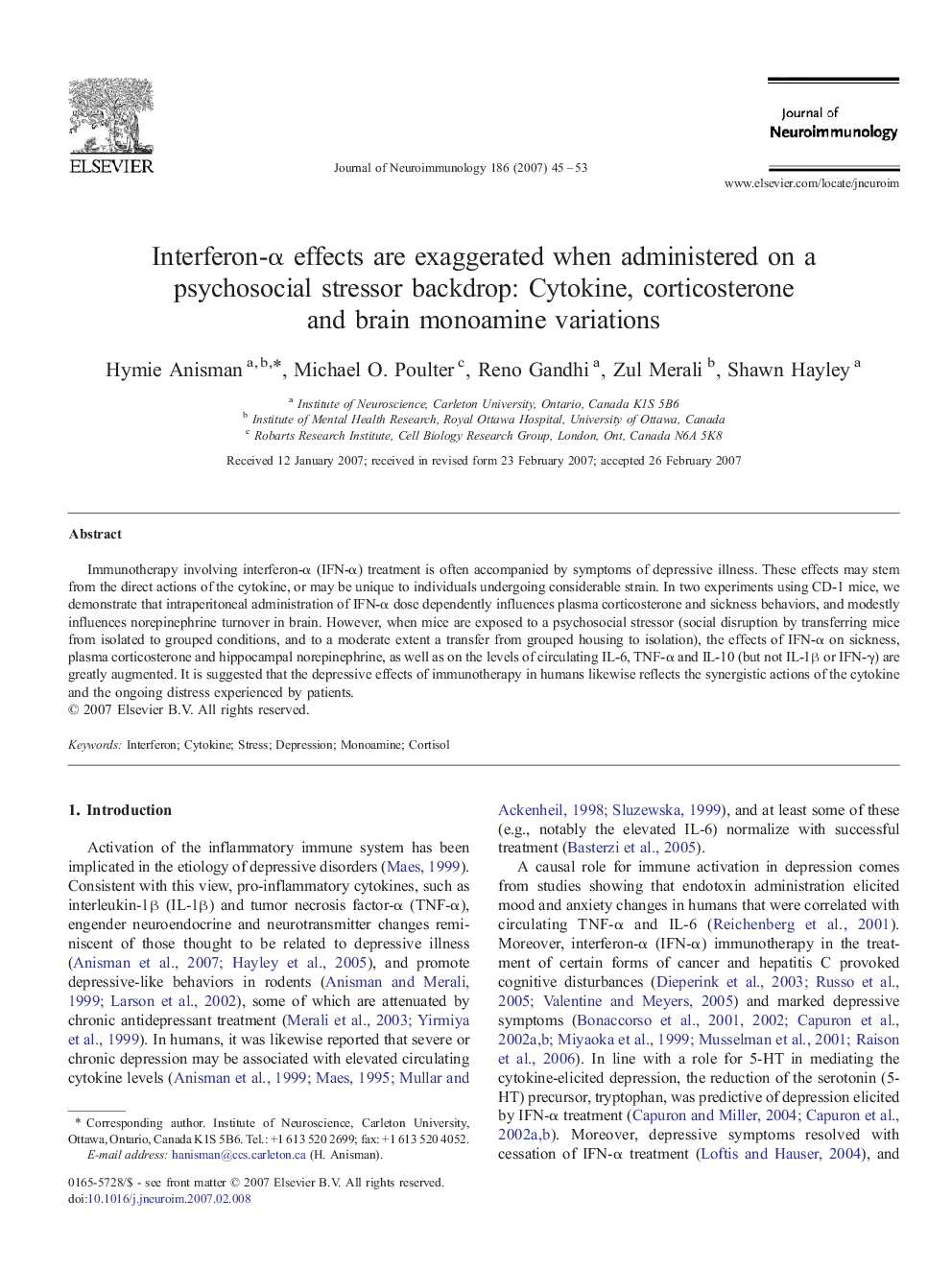| Article ID | Journal | Published Year | Pages | File Type |
|---|---|---|---|---|
| 3065608 | Journal of Neuroimmunology | 2007 | 9 Pages |
Immunotherapy involving interferon-α (IFN-α) treatment is often accompanied by symptoms of depressive illness. These effects may stem from the direct actions of the cytokine, or may be unique to individuals undergoing considerable strain. In two experiments using CD-1 mice, we demonstrate that intraperitoneal administration of IFN-α dose dependently influences plasma corticosterone and sickness behaviors, and modestly influences norepinephrine turnover in brain. However, when mice are exposed to a psychosocial stressor (social disruption by transferring mice from isolated to grouped conditions, and to a moderate extent a transfer from grouped housing to isolation), the effects of IFN-α on sickness, plasma corticosterone and hippocampal norepinephrine, as well as on the levels of circulating IL-6, TNF-α and IL-10 (but not IL-1β or IFN-γ) are greatly augmented. It is suggested that the depressive effects of immunotherapy in humans likewise reflects the synergistic actions of the cytokine and the ongoing distress experienced by patients.
